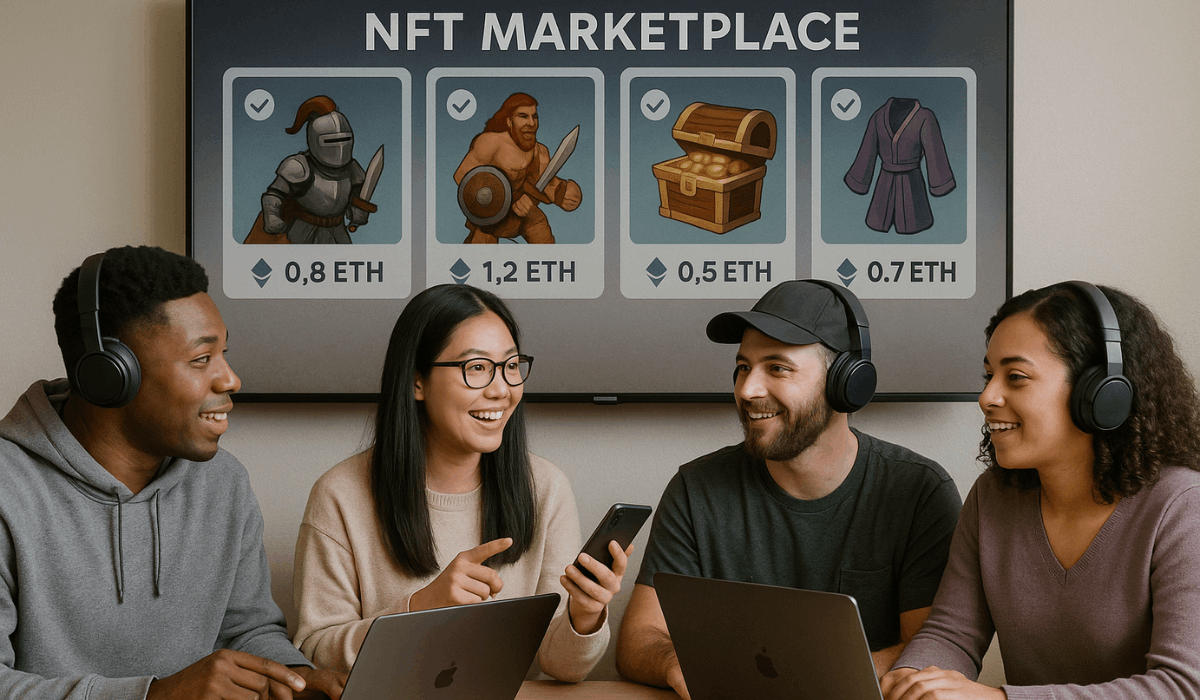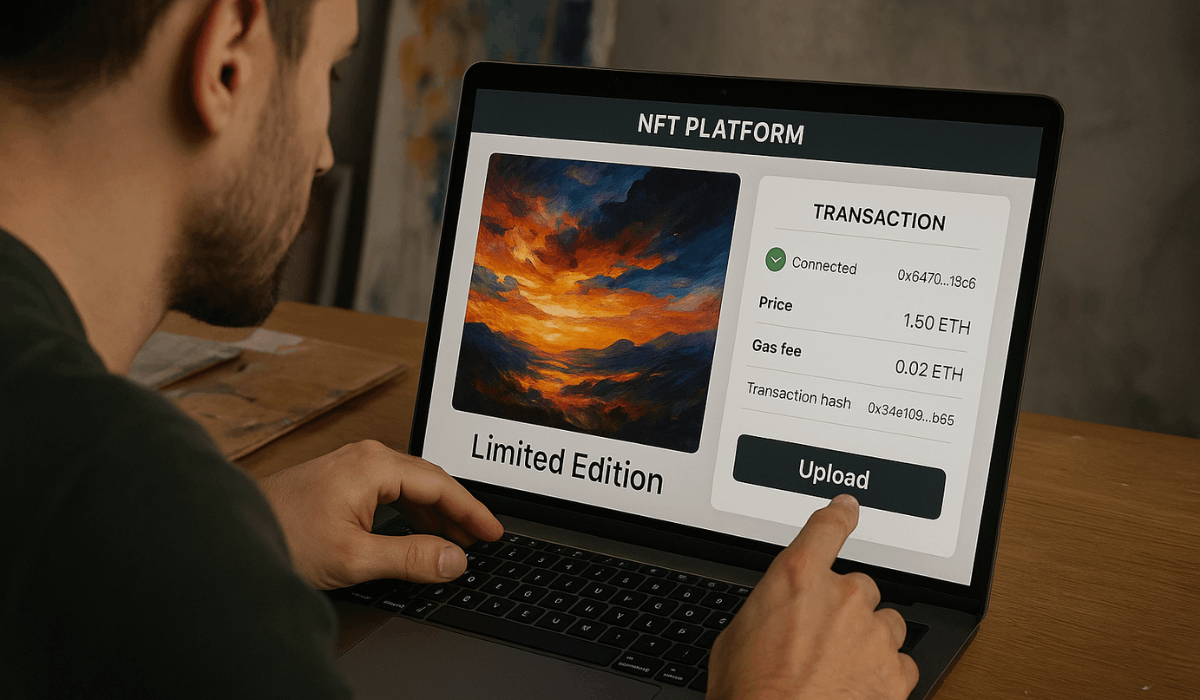Non-Fungible Tokens (NFTs) have emerged as a groundbreaking technology, revolutionizing the way we think about digital ownership and collectibles.
By leveraging blockchain technology, NFTs enable unique digital items to be bought, sold, and traded with undeniable proof of ownership.
In this article, we will explore the potential of NFTs, their applications across various industries, and the impact they may have on the future of digital assets.
Understanding NFTs
NFTs, or Non-Fungible Tokens, are unique digital assets stored on a blockchain, representing ownership of a specific item or piece of content.
Unlike cryptocurrencies, each NFT is distinct and cannot be exchanged one-to-one, making them ideal for digital art, collectibles, and virtual goods.
By using blockchain technology, NFTs ensure transparency, security, and verifiable ownership, transforming the way digital assets are bought, sold, and traded.
NFTs in Digital Collectibles
NFTs have revolutionized the digital collectibles space, offering new opportunities for creators and collectors alike.
These digital assets are now being used in various industries, from art to gaming, providing unique ways to own, trade, and invest in virtual goods.
NFTs in Art and Digital Media
- Artists can sell digital works as unique, verifiable assets on blockchain platforms.
- Ownership of these digital pieces is easily traceable, providing authenticity and scarcity.
- Creators can earn royalties each time their work is resold, ensuring continuous revenue.
Gaming and Virtual Goods
- NFTs allow players to own in-game assets like skins, characters, and weapons, giving them real-world value.
- These assets can be traded across platforms or sold to other players, enabling a secondary market.
- NFTs offer players true ownership of their digital items, enhancing the gaming experience.
Music, Video, and Other Digital Content
- Musicians and filmmakers can release limited edition NFTs of their works, offering exclusive access to fans.
- NFTs provide creators with a new revenue model by directly selling content to their audience.
- These digital collectibles allow for unique experiences, such as special edition tracks or behind-the-scenes footage, adding value to the content.

The Market for NFTs
The NFT market has seen explosive growth, attracting creators, collectors, and investors looking to capitalize on the potential of digital ownership.
From massive sales to emerging trends, the NFT space is rapidly evolving, bringing both opportunities and challenges for participants.
Current Trends in the NFT Market
- Popular NFT marketplaces like OpenSea, Rarible, and Foundation facilitate the buying and selling of NFTs across various categories.
- The market has seen record-breaking sales, with digital art and collectibles reaching millions of dollars.
- There is growing interest in NFTs beyond art, including virtual real estate, fashion, and music.
Challenges in the NFT Market
- The NFT market is volatile, with prices fluctuating dramatically, which can deter some buyers and investors.
- There are concerns about intellectual property and copyright infringement, with unauthorized use of digital works occurring frequently.
- The environmental impact of blockchain technology, particularly regarding energy consumption, is a significant concern for many in the space.
Investment and Speculation in NFTs
- Many see NFTs as speculative assets, with hopes of high returns, leading to a rise in “flipping” NFTs for quick profits.
- The long-term value of NFTs is still uncertain, with some predicting they will play a significant role in digital economies, while others remain cautious.
- NFTs are increasingly viewed as both collectibles and investment assets, similar to traditional art and rare items.
NFTs and Their Future Potential
As NFTs continue to grow, their future potential is full of exciting possibilities.
From redefining ownership to expanding into new industries, NFTs are set to shape the digital world.
NFTs in Digital Ownership and Identity
- NFTs may evolve into digital identity tokens, allowing individuals to control their online data and assets.
- They could offer secure management of personal profiles and social media identities.
- NFTs might replace traditional IDs with decentralized, verifiable credentials.
NFTs Beyond Art and Gaming
- NFTs are expanding into sectors like fashion, real estate, and education, creating new ownership models.
- Virtual real estate is being sold as NFTs in digital worlds, forming a new market.
- Fashion brands are using NFTs for limited-edition digital clothing and accessories.
Impact on the Traditional Collectibles Market
- NFTs are digitalizing physical collectibles like trading cards and rare items.
- These digital assets can be bought, sold, and verified on blockchain platforms.
- NFTs offer unique, transparent, and global trading options, transforming the collectibles market.

The Environmental and Ethical Considerations
While NFTs bring innovation, they also raise significant environmental and ethical concerns.
As the market grows, it’s essential to address these issues to ensure a sustainable and fair future for NFTs.
Environmental Impact of NFTs
- NFTs rely on energy-intensive blockchain networks, contributing to high carbon emissions.
- The environmental footprint of NFT transactions has sparked debates about sustainability.
- Efforts are being made to develop greener blockchain technologies to reduce environmental harm.
Ethical Issues in NFT Ownership
- Questions around copyright and intellectual property have surfaced, with unauthorized use of digital works.
- Artists may struggle to protect their work from being copied or sold without permission.
- The high cost of creating and trading NFTs may limit access for smaller creators and communities.
NFTs and Inclusivity
- NFTs could widen the digital divide, excluding those without access to the necessary technology.
- The market may disproportionately benefit well-known creators, leaving lesser-known artists at a disadvantage.
- Ensuring diversity and inclusion in the NFT space will be key to its long-term success.
Legal and Regulatory Landscape of NFTs
As NFTs reshape the digital market, their legal and regulatory frameworks are becoming more complex.
Understanding these regulations is essential for creators, investors, and collectors to navigate the space.
Intellectual Property and Copyright Concerns
- NFTs raise ownership issues, as creators may struggle to protect their work from unauthorized sales.
- Digital ownership transfer doesn’t always align with copyright laws, which can lead to confusion over rights.
- Clear legal guidelines are needed for managing intellectual property in the NFT space.
Regulatory Challenges
- Countries differ in how they regulate NFTs, treating them as commodities or digital assets.
- Regulations on taxation, trading, and ownership of NFTs are still developing.
- A global regulatory framework is necessary to ensure consistency in the NFT market.
Global Legal Variance
- Some countries embrace NFTs, while others impose restrictions due to concerns over fraud and money laundering.
- Legal systems are lagging behind the rapid growth of the NFT market, creating uncertainty.
- International collaboration will be crucial for creating clear NFT regulations.
The Bottomline
NFTs have the potential to revolutionize digital ownership, creating new opportunities for creators and collectors alike.
However, the space is still evolving, with challenges related to regulation, sustainability, and inclusivity.
As NFTs continue to shape the future, it’s essential to stay informed and engage responsibly in this transformative market.





